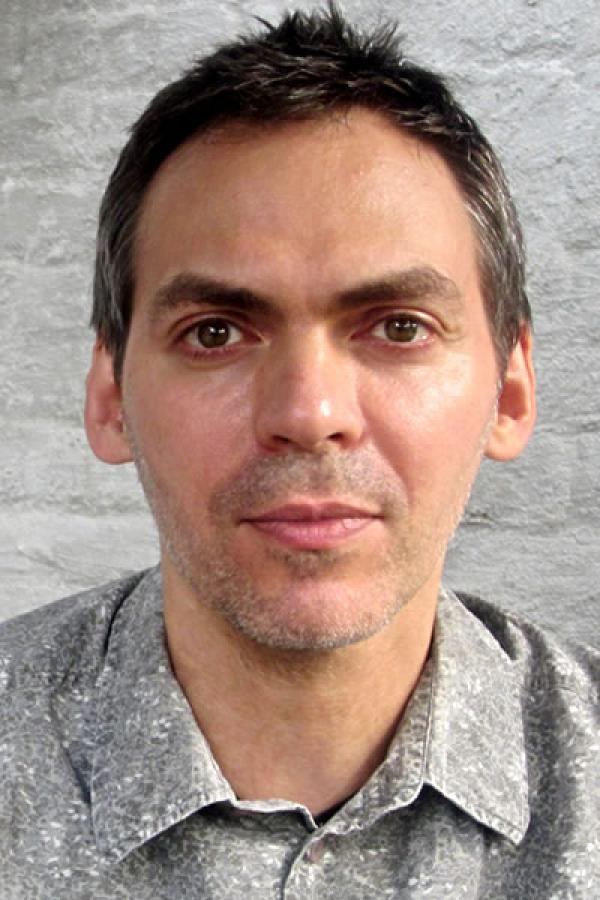Peter Constantine

Photo by Shon Arieh-Lerer
Bio
Peter Constantine is a literary translator and editor. His recent translations include Sophocles' Theban Trilogy (2008), The Essential Writings of Machiavelli (2007), and works by Gogol, Tolstoy, Dostoevsky, and Voltaire. A 2010 Guggenheim Fellow, Constantine was awarded the PEN Translation Prize for Six Early Stories by Thomas Mann, and the National Translation Award for The Undiscovered Chekhov. His translation of the complete works of Isaac Babel received the Koret Jewish Literature Award and a National Jewish Book Award citation. He is one of the editors of A Century of Greek Poetry: 1900–2000 (2004) and of The Greek Poets: Homer to the Present (2010). He received a previous NEA Translation Fellowship in 2004.
Translator's Statement
Anton Chekhov is one of the most widely translated Russian authors in the world. His plays are reinterpreted and restaged every theater season, and in America alone his many volumes of stories regularly appear in new translations. Last year, some 20 new books by Chekhov were published in English, ten in Japanese, ten in Hindi, and new translations came out in Tamil, Panjabi, and Gujurati. Yet despite Chekhov's uncontested position as one of the foremost writers of the world, a significant part of his work -- well over a hundred stories and vignettes -- still remains unavailable to English-speaking readers. The stories I am now translating with the generous support of the NEA grant are from his early period and are remarkably different in style and content from the well-known longer stories of his later years. In these early stories Chekhov opts for surprising and unusual forms that point forward to post-modernism: stories written in the form of lawyer's deposition, a census report, a series of seemingly disconnected telegrams.
Excerpt from: Nadia N.'s Vacation Homework by Anton Chekov
[translated from Russian]
Russian Language
Give five examples of relative clauses.
- Not too long ago Rushia waged war on foreign parts, by the way killing many Turks.
- The railroad is screechy, carries people, and is maid of rails and materials.
- Beef is maid of bulls and cows, while mutton is maid of sheep and baby lambs.
- Papa was passed over for a medal, so he got angry and retired due to domestic reasons.
- I adore my friend Dunya Walk-on-Waterskaya for her diligence and attention in class and for being skillful at introducing me to the Hussar Nikolai Spiridonich.
Give five examples of word agreement.
- During Lent, priests and men of the cloth refuse to marry newlyweds.
- Peasants live in country houses both summer and winter, beat their horses, but are terribly unclean, for they are bespattered with tar and refuse to hire maids and porters.
- Parents give their daughters to military men who have a fortune and their own house.
- Young boy! You must honor your papa and your mama, and thus you will be a pretty child and loved by everyone in the world.
- No chance had he for one last sigh,
As the lunging bear did upon him fly.
Composition
How did you spend your vacation?
The instant I passed my examinations, I left with mama, our furniture, and my brother Ioanni, a third-year lycée student, for our summer dacha. We were visited by: Katya Kuzevich with her mama and papa, Zina, little Egor, Natasha, and many other friends of mine, who took walks with me and embroidered out of doors. There were a lot of men, but us maidens kept away from them and paid no attention to them whatsoever. I read many books, among them Meshchersky, Maikov, Dumas, Livanov, Turgenev, and Lomonosov. Nature was at its zenith, the young trees growing in rampant profusion, no axe having yet sought out their robust trunks, and the delicate foliage cast a breezy, all-engulfing shade over the reedy soft grasses speckled with the gilded tips of buttercups, an azure spray of bluebells, and crimson cloves (lifted from Turgenev's Silent Moment). The sun rose and set. Where it rose there was a flock of birds flying. There was this shepherd who was shepherding his herd, and there were some clouds floating under the sky. O how I do love nature! My papa was jittery all summer long. The evil bank wanted to take possession of our house just like that, and mama never left papa's side as she was afraid he would take his own life. I had a very good vacation because I studied science and comported myself very well. The end.
About Anton Chekov
Anton Chekhov (1860-1904) is regarded as one of the world's modern masters, both as a playwright and as a short-story writer. By his mid-20s, he had already proved himself a prolific writer of remarkable talent and output, having published more than 400 short stories and vignettes, receiving the prestigious Pushkin Prize in 1887. Later in life (in his mid-30s), Chekhov also began to write and stage the plays that have made him one of the world's foremost playwrights: The Seagull (1895), Uncle Vanya (1896), Three Sisters (1900), The Cherry Orchard (1903)

